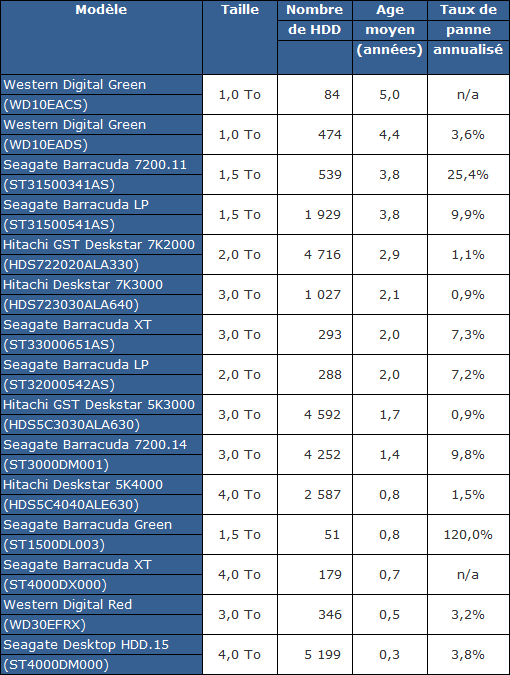MetalLobster
TD Admin
I thought this info. might be useful for anyone looking to build a PC or server.
EDIT: Now that I'm home, I can post some more key points.
"Only 10% of the hard drives in Backblaze's storage pods come from WD, and they're strictly low-power Green and Red models"
"In Backblaze's storage pods, Seagate's Barracuda 1.5TB has an annual failure rate of over 25%.The 5,400-RPM version of that drive fares better—its failure rate is only 10%—but that's still pretty high compared to the competition"
"two drives proved to be so unreliable in Backblaze's storage pods that they were left out of the totals completely. Seagate's Barracuda LP 2TB and WD's Green 3TB "start accumulating errors as soon as they are put into production,"
" Backblaze says the Seagate drives are also more prone to dropping out of RAID arrays prematurely. The company uses consumer-grade drives that aren't designed explicitly for RAID environments, of course, but that doesn't seem to bother the Hitachis."
http://techreport.com/news/25940/hard-drive-reliability-study-names-names
tldr:


EDIT: Now that I'm home, I can post some more key points.
"Only 10% of the hard drives in Backblaze's storage pods come from WD, and they're strictly low-power Green and Red models"
"In Backblaze's storage pods, Seagate's Barracuda 1.5TB has an annual failure rate of over 25%.The 5,400-RPM version of that drive fares better—its failure rate is only 10%—but that's still pretty high compared to the competition"
"two drives proved to be so unreliable in Backblaze's storage pods that they were left out of the totals completely. Seagate's Barracuda LP 2TB and WD's Green 3TB "start accumulating errors as soon as they are put into production,"
" Backblaze says the Seagate drives are also more prone to dropping out of RAID arrays prematurely. The company uses consumer-grade drives that aren't designed explicitly for RAID environments, of course, but that doesn't seem to bother the Hitachis."
http://techreport.com/news/25940/hard-drive-reliability-study-names-names
tldr:





